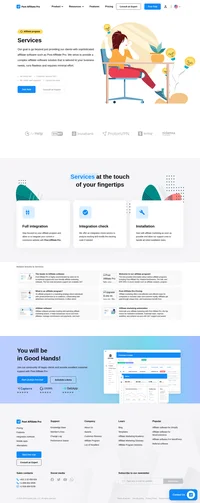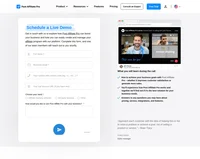What is Private Label Rights (PLR)?
Private Label Rights (PLR) refer to a specific type of licensing agreement that permits an individual or company to acquire the rights to a product, predominantly digital content, allowing them to modify, rebrand, and resell it as their own. This concept is particularly prevalent in the realms of digital marketing and content creation, offering businesses an efficient avenue to expand their content offerings without the necessity of starting from scratch.

Understanding PLR in the Context of Digital Marketing
In the digital marketing sphere, PLR products encompass a diverse array of assets such as articles, eBooks, videos, software, graphics, and more. The primary allure of PLR is its capacity to conserve time and resources while providing a foundational framework for content creation that can be tailored to suit specific branding and audience requirements.
For affiliate marketers and those deploying affiliate software, PLR presents a streamlined path to augmenting content libraries. These marketers can procure PLR content to enhance their blogs, email campaigns, or social media strategies, thereby attracting increased traffic and bolstering affiliate engagements.
Types of PLR Products
- Articles: Widely utilized for content marketing strategies, these can be rebranded and published on blogs or websites.
- eBooks: Deliver comprehensive information on niche topics and can be sold or utilized as lead magnets.
- Videos: Serve educational or marketing purposes effectively.
- Software: Can augment service offerings or be bundled with other products.
- Graphics and Templates: Employed to maintain consistent branding across digital platforms.
Benefits of Using PLR
- Cost-Effectiveness: PLR products are generally more economical than creating content from the ground up, enabling businesses to allocate resources more efficiently.
- Time Savings: By leveraging pre-developed content, companies can swiftly respond to market trends and customer demands.
- Customization Opportunities: Businesses can modify PLR content to align with their brand identity, rendering it unique to their audience.
How to Use PLR Content Effectively
- Editing and Branding: Customize PLR materials to reflect your brand’s voice and style. This may involve rewriting sections, adding personal insights, and incorporating company logos and design elements.
- Content Strategy Integration: Ensure PLR content complements existing content strategies by filling gaps or expanding on current topics. Distribute content across various platforms in formats that resonate with specific audiences.
- Avoiding Duplicate Content: To maintain SEO effectiveness and originality, significantly alter PLR content before publishing. Tools like Copyscape can verify uniqueness and prevent plagiarism issues.
Legal Considerations
- License Terms: Grasp the specific rights granted by the PLR license, including any modifications, resale rights, and requirements for attribution.
- Copyright Laws: Ensure compliance with copyright laws to avoid unauthorized use of protected content.
- Usage Limitations: Be cognizant of any restrictions on content use, such as the number of sales allowed or specific distribution channels.
Monetizing PLR Products
- Direct Sales: Customize PLR products for sale as your own, offering them as standalone products like eBooks or courses.
- Lead Magnets: Utilize PLR content to create free offers that attract potential customers and build an email list.
- Membership Content: Populate membership sites with regularly updated PLR content to provide ongoing value to subscribers.
Marketing Strategies for PLR
- Online Presence: Utilize a well-designed website to showcase PLR offerings, enhanced by a blog delivering valuable content.
- SEO Optimization: Conduct keyword research to optimize PLR content for search engines and create backlinks to increase visibility.
- Social Media Engagement: Share PLR content on social media platforms to elevate awareness and drive traffic.
Customizing PLR for Your Niche
Create Unique Offerings: Transform PLR into unique products by incorporating original ideas and branding elements.
Identify Audience Needs: Conduct market research to understand your audience’s requirements and tailor PLR content to meet these needs.
Adapt Products: Modify PLR content by adding personal insights and relevant examples to ensure it resonates with your audience.

Understanding Private Label Rights (PLR) Content
Private Label Rights (PLR) offer a unique opportunity for online businesses to enhance their content strategy and product offerings without the usual time and resource constraints. By leveraging PLR, businesses can efficiently produce and distribute new content, maintaining a consistent presence in their niche.
What is PLR Content?
PLR content is material licensed to buyers, allowing them to use it as their own. This includes editing, repurposing, and rebranding, providing immense flexibility in content creation. The purchaser of PLR content does not owe royalties or credit to the original creator, enabling seamless integration into existing marketing strategies.
Benefits of Using PLR in Affiliate Marketing
-
Time Efficiency: PLR content significantly reduces the time spent on research and content creation. Affiliate marketers can quickly adapt PLR materials, such as blog posts or e-books, to suit their audience, allowing them to focus on other critical business areas.
-
Enhanced Value Proposition: Incorporating PLR into current offerings can increase product value. Bundling PLR content with existing products or using it to create supplementary materials can justify higher pricing or more competitive product positioning.
-
Expand Expertise: PLR allows marketers to explore new topics and niches without the initial learning curve. By acquiring PLR on relevant subjects, marketers can rapidly develop content expertise, enhancing their authority and trustworthiness in new domains.
Managing PLR Effectively
To maximize the benefits of PLR, it is essential to handle the content strategically:
-
Understand Usage Rights: Before using PLR, thoroughly read the rights certificate to ensure compliance with the seller's terms. This clarification helps avoid potential legal issues and maximizes the content's utility.
-
Inventory Content Components: Identify and categorize the different components of your PLR package, such as videos, articles, and cheat sheets. Understanding what you have helps in planning how best to utilize each piece.
-
Organize and Archive: Efficient filing and archiving systems allow for easy retrieval and use of PLR content. Label your archives clearly to facilitate quick searches for specific topics or formats.
FAQs
What are the types of PLR rights available?
PLR content can include private label rights, resale rights, master resale rights, personal use rights, and unrestricted rights, each offering varying degrees of freedom in content usage.
Can PLR content be resold?
Yes, depending on the rights purchased, PLR content can be resold. However, some rights may restrict alterations to the content, so it's crucial to understand the specific terms of your purchase.
How can PLR enhance affiliate marketing strategies?
PLR can provide ready-to-use content that can be personalized to fit marketing campaigns, thereby enhancing engagement and expanding reach without the need for extensive content creation efforts.
Incorporating PLR content into affiliate marketing strategies can streamline operations and boost content output, allowing marketers to focus on growth and customer engagement. By understanding and utilizing PLR effectively, affiliates can maintain a competitive edge in their respective markets.
Frequently Asked Questions
How private label rights help grow your home business?
Private label rights can be a great way to grow your home business. You can create your own products from PLR products or add value to your existing products. PLR products can also be used to create marketing materials, website content, email courses, ebooks, reports, or audio products.
Can you make money from PLR?
Yes, you can either sell the PLR products as they are or you can use the content to create new products.
How can I use private label rights products?
There are many ways to use private label products such as identifying a market need for the product, customizing the product to better suit the target audience, and using the product as a part of a larger marketing campaign.
Discover Post Affiliate Pro's flexible pricing plans tailored to fit your business needs, with options for Pro, Ultimate, and Network packages. Enjoy a free trial with no credit card required, no setup fees, and the freedom to cancel anytime. Benefit from features like unlimited affiliates, advanced reporting, customizable interfaces, and lifetime support. Save up to 20% with annual billing and take advantage of more than 220 integrations. Perfect for businesses seeking to enhance their affiliate marketing efforts. Visit now to find the ideal plan for you!
The leader in Affiliate software
Post Affiliate Pro offers a comprehensive affiliate software platform to manage multiple affiliate programs with ease. Enjoy no setup fees, 24/7 customer support, and a free 1-month trial. Ideal for small and large businesses, it features precise tracking, automated workflows, and customizable tools to boost your affiliate marketing success. Try it now and streamline your affiliate operations effortlessly!
Post Affiliate Pro recognized as a Category Leader by SourceForge
Post Affiliate Pro named Category Leader by SourceForge for its powerful affiliate features, top user reviews & 24/7 support. Try it now!









